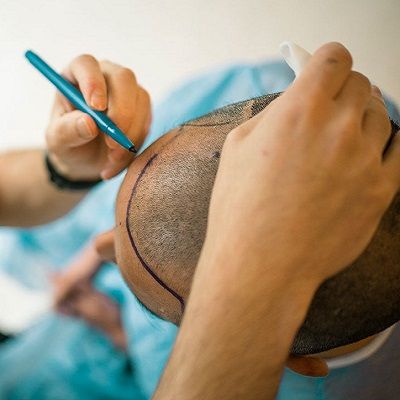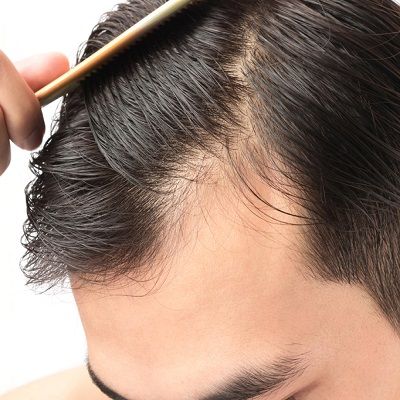
A poor transplant can be a depressing procedure that leaves patients feeling self-conscious and guilty in addition to unsatisfactory outcomes. Thankfully, hair restoration has advanced tremendously, and poor results may now be addressed and corrected with a variety of methods. If you are also looking for a Can A Bad Hair Transplant Be Fixed In Dubai? It can be rectified with several skilled and knowledgeable surgeons on staff. Numerous variables go into a successful hair transplant, such as selecting the best technique and paying close attention to aftercare instructions, so finding a skilled surgeon with a lot of experience doing this treatment is crucial.
If patients are unhappy with the results of their initial treatment, they can also choose more sophisticated procedures like FUE or Micro-Follicular Extraction, which makes it simple for them to have a natural-looking result. To get the best results possible, you should speak with your doctor about your choices for correcting a botched hair transplant.
What is a Poor Hair Transplant?
A botched Hair Transplant might show up as a lack of density, hairlines that don’t seem natural, obvious scars, or an unnatural overall appearance. Determining the exact nature of the problem with your hair transplant is essential to choosing the right line of action to fix it. Even though a poor hair transplant might be upsetting and frustrating, it’s vital to understand that there are options. Thanks to improvements in hair restoration methods and the knowledge of skilled professionals, a lot of people have been able to properly address and resolve problems. If you find yourself in this predicament, consider your alternatives carefully.
Causes Of Hair Transplant Failure:
Anyone trying to treat hair loss concerns may have a painful experience with a botched hair transplant. Even though it is usually seen to be safe and successful, occasionally the outcomes cannot live up to expectations. The following are the causes of hair transplant Failure:
Botched Surgical Technique:
Using antiquated or incorrect surgical procedures is one of the main causes of a botched hair transplant. Uneven graft placement, abnormal hairlines, or obvious scarring might be the outcome of untrained or inexperienced surgeons.
Inadequate Donor region Management:
The grafts needed for transplantation are obtained from the donor region, which is normally situated at the back of the head. This region may shrink or scar noticeably if it is overharvested or treated improperly.
Inappropriate Hairline Design:
It takes skill to create a hairline that looks natural. A badly thought-out hairline that clashes with facial characteristics might make the transplant less satisfying.
Problems with Graft Survival:
The viability of the transplanted grafts is essential to the outcome of a hair transplant. Low survival rates can be caused by things like improper graft management, extended air exposure, or insufficient blood flow to the transplants.
How to Fix an Unsuccessful Hair Transplant?
As previously said, while a bad hair transplant cannot be undone and your hair restored to its original state, we may work with patients to correct and restore a bad hair transplant. In most situations, FUE hair transplantation is used to transplant hair grafts from the donor region to the area of the scalp that requires treatment. The following are the solutions:
Revisional Surgery:
A hair transplant revision is a remedial operation that can be used in certain situations. This entails dealing with and fixing the problems from the first transplant, such as dispersing grafts, altering the hairline, or resolving uneven density.
FUE Hair Transplant:
With FUE, an advanced hair transplant method, individual hair follicles are taken straight out of the donor area and placed into the recipient area. Specific problem areas can be addressed with this technique without leaving new scars.
Micropigmentation or Scalp Microblading:
Micropigmentation might be a useful treatment for people with noticeable scars or uneven pigmentation. Pigments are applied to the scalp in this non-invasive procedure to provide the illusion of a bigger head of hair and scars that blend in.
Topical Interventions and Drugs:
Topical therapies or drugs like finasteride or minoxidil may be suggested in some situations to encourage hair growth and enhance general hair health. These choices can support additional remedial actions even if they might not be able to undo a poor transplant.
Things to Think About Before Seeking Correction:
It’s crucial to understand that there are ways to address and resolve the problems. Selecting a trustworthy and knowledgeable surgeon early on lowers the likelihood of dissatisfaction. The first step in identifying a workable solution and getting the intended outcomes in situations of discontent is consulting with a certified Hair Specialist. Recall that a well-performed hair transplant in Dubai may significantly alter one’s life by increasing self-esteem and bringing back a youthful, natural appearance.
Speaking with a Qualified Hair Transplant Expert:
See a licensed and experienced hair transplant professional before making any decisions regarding remedial measures. Based on your particular circumstances, they may evaluate the condition of your hair at the moment and suggest the best course of action.
Reasonable anticipations:
It’s critical to establish reasonable expectations on the possible results of remedial action. Although substantial progress can be made, it’s not always feasible to reach perfection, and it can take several sessions to get there.
Patient Testimonials and Pre- and Post-Photos:
Examining patient testimonials and comparing before and after pictures of people who have had corrective surgery performed by the same physician might reveal important information about the procedure’s chances of success.
Why Opt for Us?
Offering complete hair care solutions is Dynamic Aesthetic Clinic in Dubai’s goal. Our team of knowledgeable and experienced hair care specialists can assess your particular problem and recommend the best course of action. We cordially encourage you to schedule a consultation with one of our experts so that you may start discussing your hair loss concerns. To begin, just schedule your consultation and quickly complete an online form.











